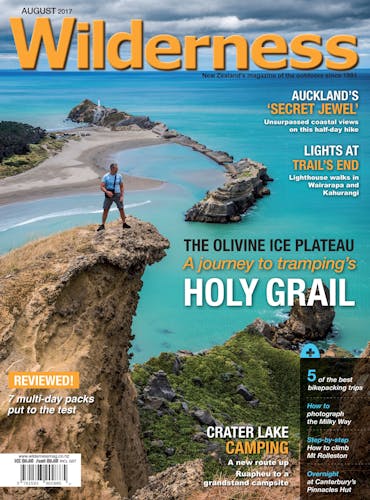On NMIT’s adventure tourism diploma, students not only gain invaluable hands-on experience, but the contacts needed to find a job after graduation, writes Rachel Rees
In 2015, Jackie Lee Loffley-Wilson had a ‘whoops’ moment that led to her first job as a rafting guide. The 18-year-old and her fellow Nelson Marlborough Institute of Technology (NMIT) classmates were paddling the Buller River when a rapid swept her overboard and she plunged into the swirling white water beneath.
“I put myself in what’s known as the ‘white water float position’. I put my nose and toes in the sky and I managed to get on the top of the rapid,” she says.
Jackie threw her paddle down to the next boat, saw another raft edging closer and climbed into it. Then, in a feat of personal strength, she ran across the raft and “superman dived” back onto her raft.
“My tutor was like ‘pull over Jackie, pull over. Are you alright?’”
Jackie was shaken but unperturbed and wanted to keep going. They rejoined the group back on the river.
Later, Tim Marshall, one of Jackie’s tutors, called her over. Expecting a reprimand, she was surprised when Tim instead offered her a job as a rafting guide.
“He saw that I was able to think under pressure,” says Jackie.
Preparing students to manage risk is what NMIT’s Level 5 Diploma in Adventure Tourism is about. From start to graduation, the environment is their classroom. The ratio is 75 per cent field time, 25 per cent classroom-based theory – a much higher proportion than most institutes.
Courses include sea kayaking, white water rafting, rock climbing, canyoning, tramping and more. A full ski programme is embedded into the diploma, too. The most comprehensive of its kind in New Zealand, it encompasses more than general ski patrol and is instructed at Porters Ski Field in Canterbury.
“We aim to produce guides, not just recreationalists,” insists Sam Russek, Adventure Tourism Coordinator for NMIT and a kayak guide at Abel Tasman Kayaks.
“We want students paddling harder and rafting and tramping harder, but we want them to be able to look after people as well. They need to be able to communicate, manage risk, and help people. The service side of adventure tourism is strong.”
For Jackie, showcasing New Zealand and delivering a great experience for people is what she is here to do. After her touch-and-go experience on the Buller River, she spent the summer with rafting company Ultimate Descents.
“It was cool working with people who are still ‘teaching’ me to better myself as a guide,” says Jackie. “Tim started as my tutor and then became my boss which made it so easy. I see him as someone I look up to, someone I want to be like as a guide, but also have my own spark of Jackie-ness.”
NMIT has close relationships with industry across the country. “We’ve all worked in the industry and are very involved still,” says Sam.
“I’ve been a sea kayak guide and school teacher. We know everybody. Two of the tutors own adventure tourism businesses.”
Todd Jago owns Waka Abel Tasman, and Toby Wild owns Moana NZ SUP.
“None of our students struggle to get jobs at the end of the programme,” Sam says.
Since 2013, the programme has had a 100 per cent success rate when it comes to students securing work after graduation.
Jackie is now a full-time rafting guide at Tongariro River Rafting.
“The rivers are on different scales,” she says. “This one is more tight and technical which has helped me so much in my guiding.”
The now 20-year-old relishes the chance to share her stories of the greater Taupō region with local and international tourists. But the experience runs even deeper for Jackie who is of Ngāti Whakaue descent. She feels at one with the river and is deeply aware of the need to protect it for future generations.
“It’s very personal and close to me, being of Māori origin.”
Jackie was impressed with the attention given to tikanga Māori and kaitiakitanga during her time at NMIT.
“I really respect that they intertwine that into the course,” says Jackie. “People come here not only to experience the country, but to experience the culture.
“They definitely emphasise toitū te whenua – the seven rules of ‘leave no trace’. Leave the land as you found it, have respect for the land and be thankful that this is all here. Leave it to future generations to enjoy as well.”
– This story is sponsored content provided by NMIT
Learn more
www.nmit.ac.nz
Certificate in Adventure Tourism, Level 4
Starts February 5, 2018, one year full time
Diploma in Adventure Tourism, Level 5
Starts February 5, 2018, two years full time (or one year to complete, following the completion of the Certificate in Adventure Tourism)







